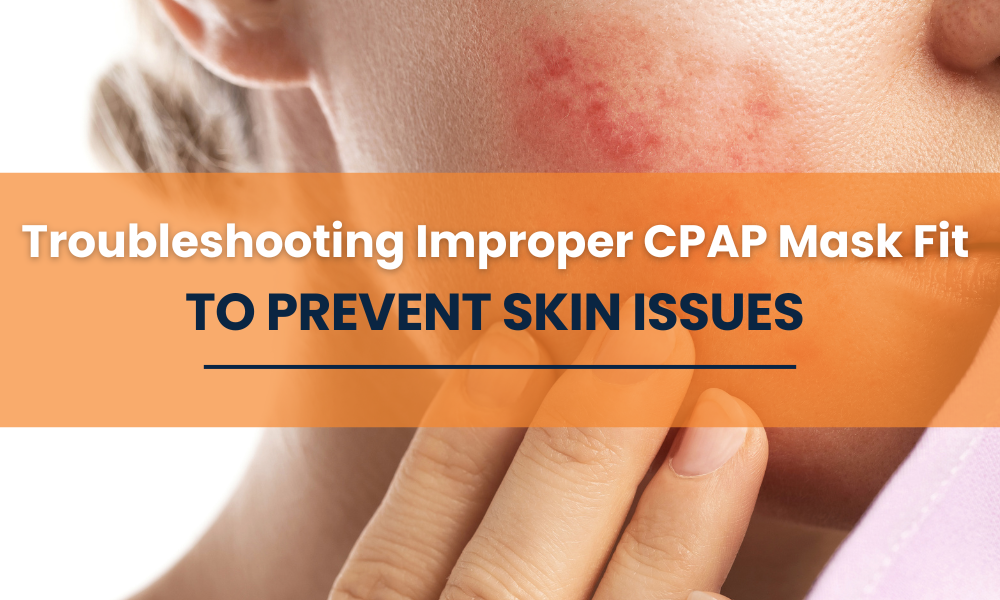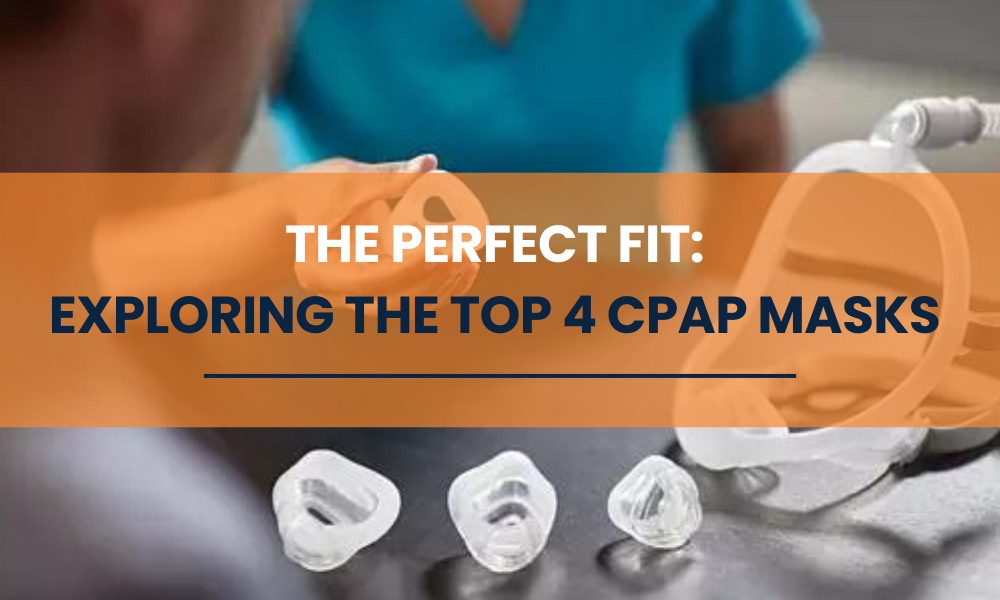Using a CPAP machine can be life-changing for those dealing with sleep apnoea, but improper CPAP mask fit can lead to uncomfortable consequences, including CPAP mask skin irritation. If you’ve noticed redness, soreness, or other skin issues around your mask area, it’s essential to address these concerns promptly.
At Rockingham CPAP, we understand the impact of mask fit on your comfort and therapy effectiveness. In this article, we’ll explore the common causes of skin irritation, offer tips for finding the right mask, and suggest how to maintain your equipment effectively.
Understanding the Causes of CPAP Mask Skin Irritation
CPAP mask skin irritation can result from various factors, making it essential to pinpoint the cause. One major issue is an improper CPAP mask fit; if it’s too tight, pressure points can form, while a loose mask can cause friction from shifting. Another culprit is bacteria build-up. Natural oils, sweat, and moisture can accumulate on your mask, creating a breeding ground for bacteria that can irritate your skin.
The materials used in CPAP masks may also contribute to the problem. Some people are sensitive to latex or other components, causing allergic reactions or sensitivities. Identifying these factors is key to addressing and preventing skin issues effectively.
Choosing the Right CPAP Mask for Your Skin Type
Finding the right CPAP mask can make a world of difference in preventing skin irritation. With various options available—such as nasal masks, full-face masks, and nasal pillows—there’s something to suit every preference and skin type.
For those with sensitive skin, hypoallergenic materials or masks with soft, cushioned interfaces are excellent choices. Look for skin-friendly CPAP products designed to minimise irritation. Masks that have fewer contact points can also help by reducing pressure and friction.
Consider your sleeping position too. Side sleepers often find nasal masks or pillows more comfortable, while back sleepers might prefer full-face masks. Testing different types with your provider or in a sleep clinic can be incredibly beneficial for finding your perfect fit.
Ensuring a Proper Fit to Avoid Pressure Points
A proper fit is key to comfort and avoiding pressure points that lead to skin irritation. Start by gently adjusting the straps of your CPAP mask. It’s best to loosen them a bit first and see how the mask settles on your face. It should feel snug but not tight. If you notice any soreness, those are potential pressure points that need attention.
Using the fitting guides that come with most masks can be a big help. These recommendations are designed to ensure you get the most comfortable and effective fit. Don’t hesitate to spend some time getting it right; a little adjustment can make a big difference.
Establishing a Regular Cleaning Routine for Your CPAP Equipment
Establishing a routine for cleaning your CPAP equipment is vital for maintaining skin health and ensuring effective therapy. Start by rinsing your CPAP mask daily with warm water and a mild soap. Avoid using harsh chemicals as they can irritate your skin and potentially damage the mask material. Make sure to also clean the headgear, as sweat and oils can accumulate there, contributing to skin irritation.
In addition to your daily cleaning, commit to a deeper clean of your CPAP setup on a weekly basis. This includes the humidifier chamber, tubing, and filters. Let all components air dry thoroughly before reassembling.
Consider using CPAP cleaning wipes for a quick and convenient way to keep your mask fresh in between washes. Remember, a clean CPAP mask not only feels better on your skin but also helps in reducing the risk of bacteria build-up. Regular maintenance of your equipment will go a long way in preventing skin irritation and keeping your therapy running smoothly.
Treating Skin Irritation Caused by CPAP Masks
If you’re already dealing with CPAP mask skin irritation, several steps can help soothe your skin and make your therapy more comfortable. First, give your skin some time to breathe by removing the mask for short periods. Apply a gentle, fragrance-free moisturiser or a barrier cream to the affected areas to promote healing. Ensure that any products you use are compatible with your CPAP mask to avoid potential damage.
Consider using a mask liner or a soft cloth as a buffer between your skin and the mask. These liners can reduce friction and prevent further irritation. They’re particularly useful for people with sensitive skin or those prone to pressure sores.
If the irritation doesn’t improve, it might be worth trying a different type of mask or one made from alternative materials. Sometimes, switching to a hypoallergenic option or a mask with a softer, more cushioned interface can make a significant difference in your comfort.
Remember, everyone’s skin is different, so what works for one person might not work for another. Keep experimenting with different solutions until you find what works best for you. And if you’re still struggling, don’t hesitate to seek advice from your healthcare provider for more tailored recommendations.
When to Consult Your Doctor for Persistent Issues
If you’ve made all the recommended adjustments to your CPAP mask, maintained a thorough cleaning routine, and tried various treatments for skin irritation without success, it may be time to consult your doctor. Persistent skin issues could signal an underlying condition that needs professional attention.
Your doctor can help identify any skin allergies or sensitivities that may be exacerbating the problem. They might also suggest trying different types of masks or materials that could be more suitable for your skin type. Additionally, your healthcare provider may refer you to a sleep specialist or a CPAP technician, like the team at Rockingham CPAP. These professionals can offer in-depth guidance on achieving the best possible fit for your mask and ensuring your equipment is functioning correctly.
Remember, the goal is to make your CPAP therapy as comfortable and effective as possible, so don’t hesitate to seek expert advice. Your wellbeing is the top priority, and sometimes a tailored approach is necessary to resolve persistent issues.
Resolve CPAP Mask Issues with Rockingham CPAP
Managing CPAP mask fit is essential for a comfortable and effective therapy experience. Addressing issues like skin irritation promptly can make a significant difference in your overall comfort and adherence to treatment. By understanding the causes of skin irritation, selecting the right mask, ensuring a proper fit, and maintaining your equipment, you can significantly reduce discomfort and enhance your therapy.
Experiencing discomfort or skin issues with your CPAP mask? Let Rockingham CPAP help you find the perfect solution. Contact us on (08) 6186 6636 for expert advice, the latest CPAP equipment, and personalised support to ensure your therapy is as comfortable and effective as possible. Reach out now and start your journey towards better sleep and skin health!



